Tilia cordata 'Winter Orange', Winterlinde 'Winter Orange' Baumschule Weber

Tilia cordata 'Winter Orange', Winterlinde 'Winter Orange' Baumschule Weber
'Winter Orange' is an upright, broadly columnar to oval, deciduous tree with orange to orange-red winter stems, rounded, dark green leaves, turning yellow in autumn. Clusters of small, fragrant, pale yellow to white flowers bloom in summer. Season of interest Height and spread Metric | Imperial Where to grow Soil type Chalky Clay Sandy

Tilia cordata ‘Winter Orange’ Ruud van den Berk Back gardens, Landscape design, Landscaping
Product details Tilia cordata Winter Orange has uniquely orangey red stems that glow firey orange throughout the winter. This beautiful tree is a new variety of the Small Leaved Lime Tilia cordata which was found as a seedling in the Netherlands in the 1970's.

Tilia cordata 'Winter Orange' Tilia cordata 'Winter Orange' Van den Berk Nurseries
Description: A medium to large tree with a broadly oval crown at maturity, and heart shaped, matt green leaves in summer, turning better yellow in autumn. Ivory white, sweetly scented flowers in July. An outstanding plant with red buds and pronounced orange twigs and shoots in winter.

Tilia Cordata 'Winter Orange' from Burncoose Nurseries
Application, location and plant characteristics of the Tilia cordata 'Winter Orange' in the Ebben Nurseries TreeEbb. Plus many more species descriptions for trees.. Winter hardiness zones are thirteen different frost zones in steps of 5.5 degrees Celsius. This format is an international standard for the hardiness of plants. The zones in.

Tilia cordata 'Winter Orange' Small Leaved Lime Winter Orange New Wood Trees
Greenspire little-leaved linden (Tilia cordata 'Greenspire'): This cultivar also grows shorter than the species, maturing at 50 feet tall. The habit is a neat pyramidal shape with a central leader. Glenleven linden (Tilia cordata 'Glenleven'): This is now classified as Tilia x flavescens 'Glenleven'. It is a faster growing cultivar.
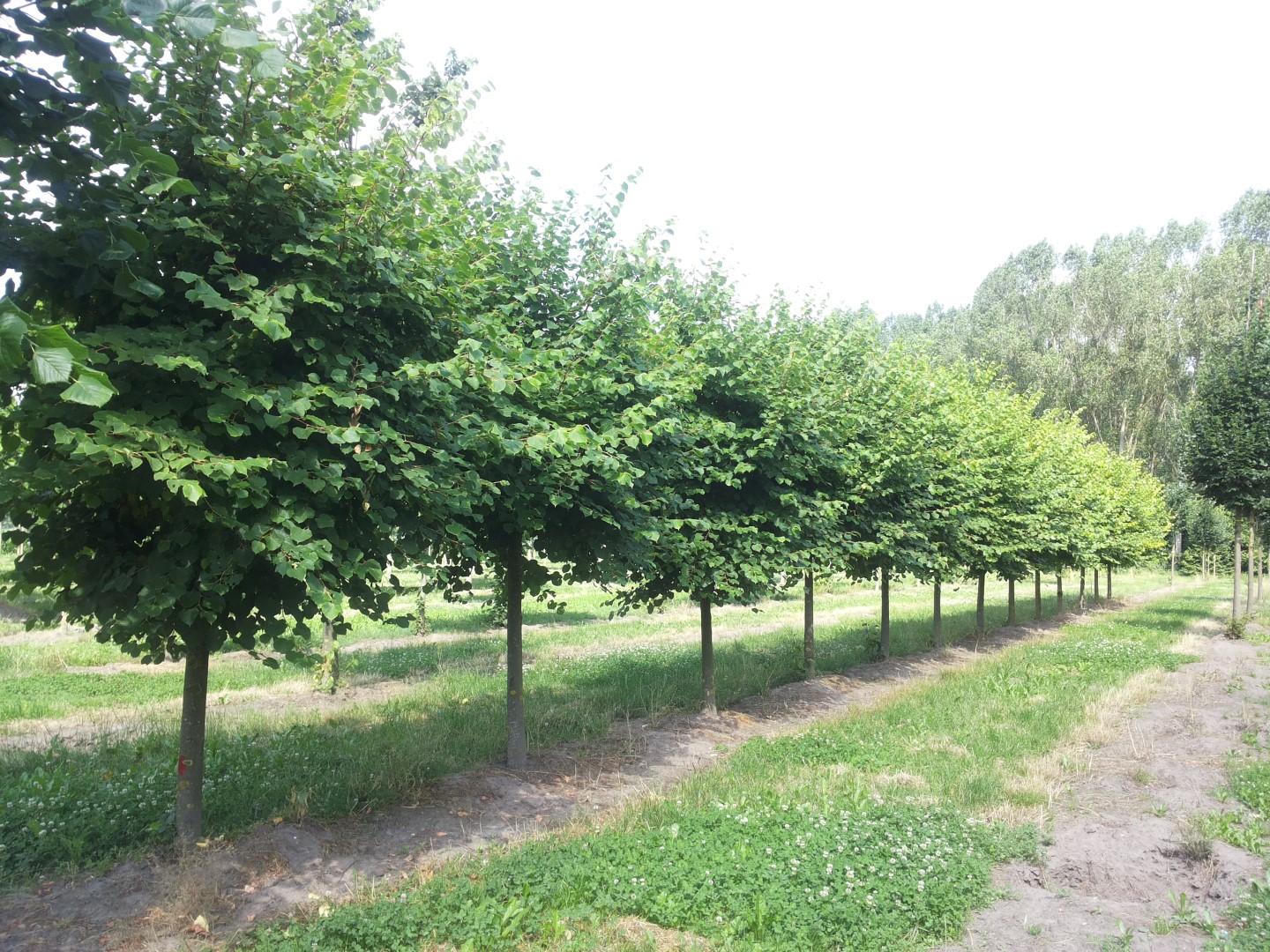
Tilia cordata 'Winter Orange' Tilia cordata 'Winter Orange' Van den Berk Nurseries
Winter Orange Littleleaf Linden (Tilia cordata 'Winter Orange'): Skip to main content Toggle Menu. Plan a Visit Membership Donate. Tilia cordata 'Winter Orange' Back to Plant Finder . Tilia cordata 'Winter Orange' Locate. 42.14294815, -87.78515625. 42.15039062, -87.78955078.

Tilia cordata 'Winter Orange' Tilia cordata 'Winter Orange' Van den Berk Nurseries
Tilia cordata 'Winter Orange' Common Name : Winter Orange Little-leaf Linden. Product Information : Excellent variety with orange-red winter twigs and buds. Fragrant ivory flowers in July. Heart-shaped green leaves turn early, bright yellow for fall. Compact habit. Mature Size : 12' x 10'

Tilia Cordata 'Winter Orange' from Burncoose Nurseries Plants, Dark green leaves, Yellow autumn
Accessed 2024-01-03. Genus Tilia Common Names Small-leaved Lime Littleleaf Linden Pry Synonyms Tilia parvifolia Ehrh. Tilia microphylla Vent. Tilia ulmifolia Scop. Species Links Ancient Small-leaved Lime ( Tilia cordata) in Dallam Park, Cumbria - part of one of the northernmost wild populations of this species. Image Owen Johnson.

Tilia cordata 'Winter Orange', Winterlinde 'Winter Orange' Baumschule Ley
Now £70 (inc VAT) Loading. Tilia cordata 'Winter Orange' is an attractive Lime tree with winter interest. Available from specialist nursery with 97% review score & nationwide delivery.

Plantenwinkel Tilia cordata 'Winter Orange' www.esveld.nl
Tilia cordata 'Winter Orange' is a broadleaf deciduous tree with green foliage and yellow and cream flowers in summer. It can grow 20 FT - 40 FT - wide, 30 FT - 60 FT - tall. Attractive to bees, butterflies and beneficial insects. To grow well, it prefers sun - dappled shade and even moisture - low water. Drought tolerant once established.
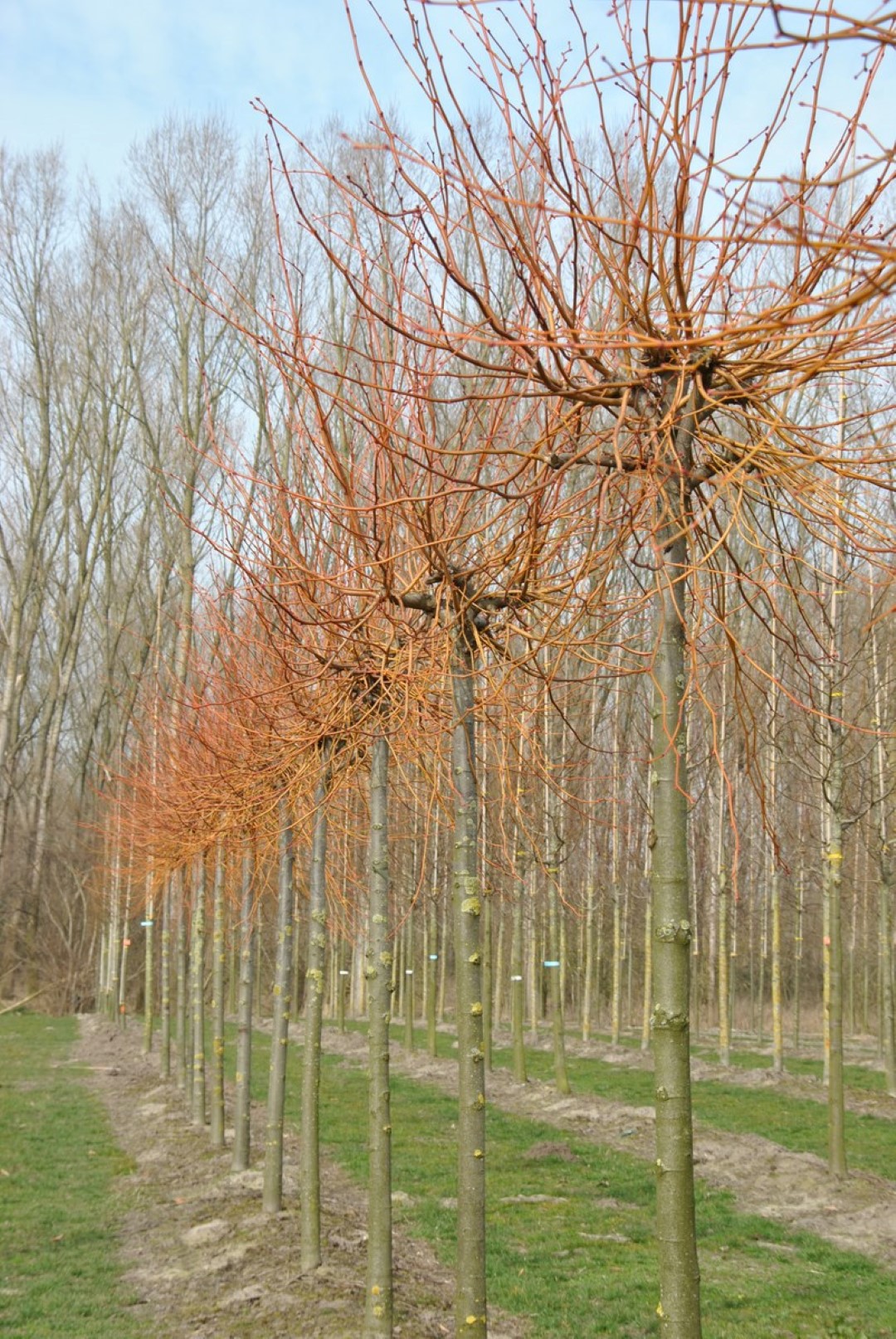
Tilia cordata 'Winter Orange' Tilia cordata 'Winter Orange' Van den Berk Nurseries
Tilia cordata, the small-leaved lime or small-leaved linden, is a species of tree in the family Malvaceae, native to much of Europe. Other common names include little-leaf or littleleaf linden, [2] or traditionally in South East England, pry or pry tree. [3] Its range extends from Britain through mainland Europe to the Caucasus and western Asia.
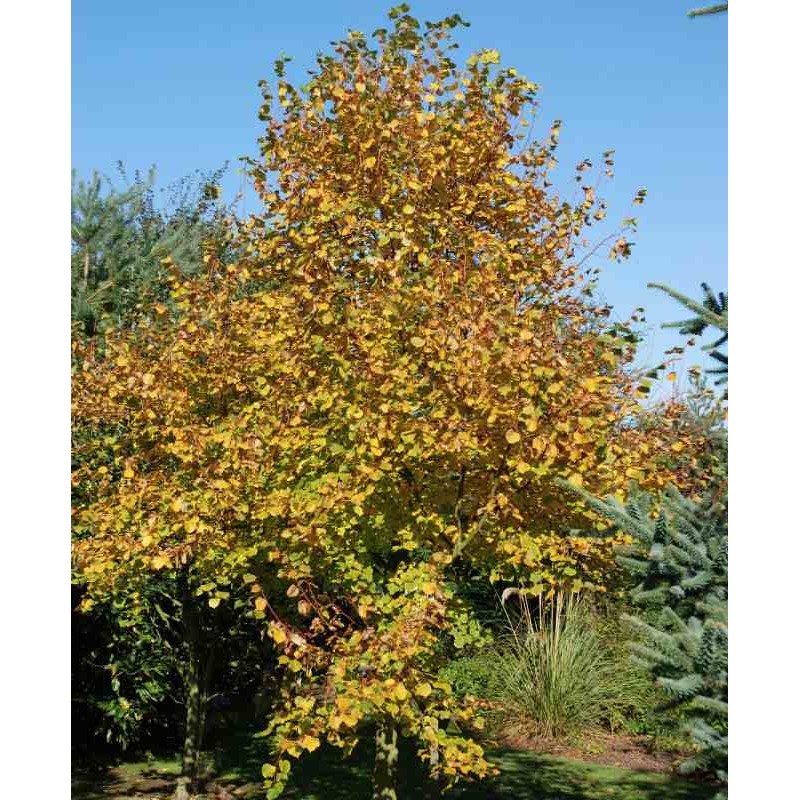
Tilia cordata 'Winter Orange'
The genus name tilia is Latin for Linden and Lime Tree. It is derived from the Greek word ptelea meaning "Elm tree" or tillai meaning "Black Poplar." The translation means "broad" as in "broad-leaved." The epithet, cordata, is Latin for "heart-shaped." The tree prefers full sun to partial shade, loamy, moist, and well-drained soils.
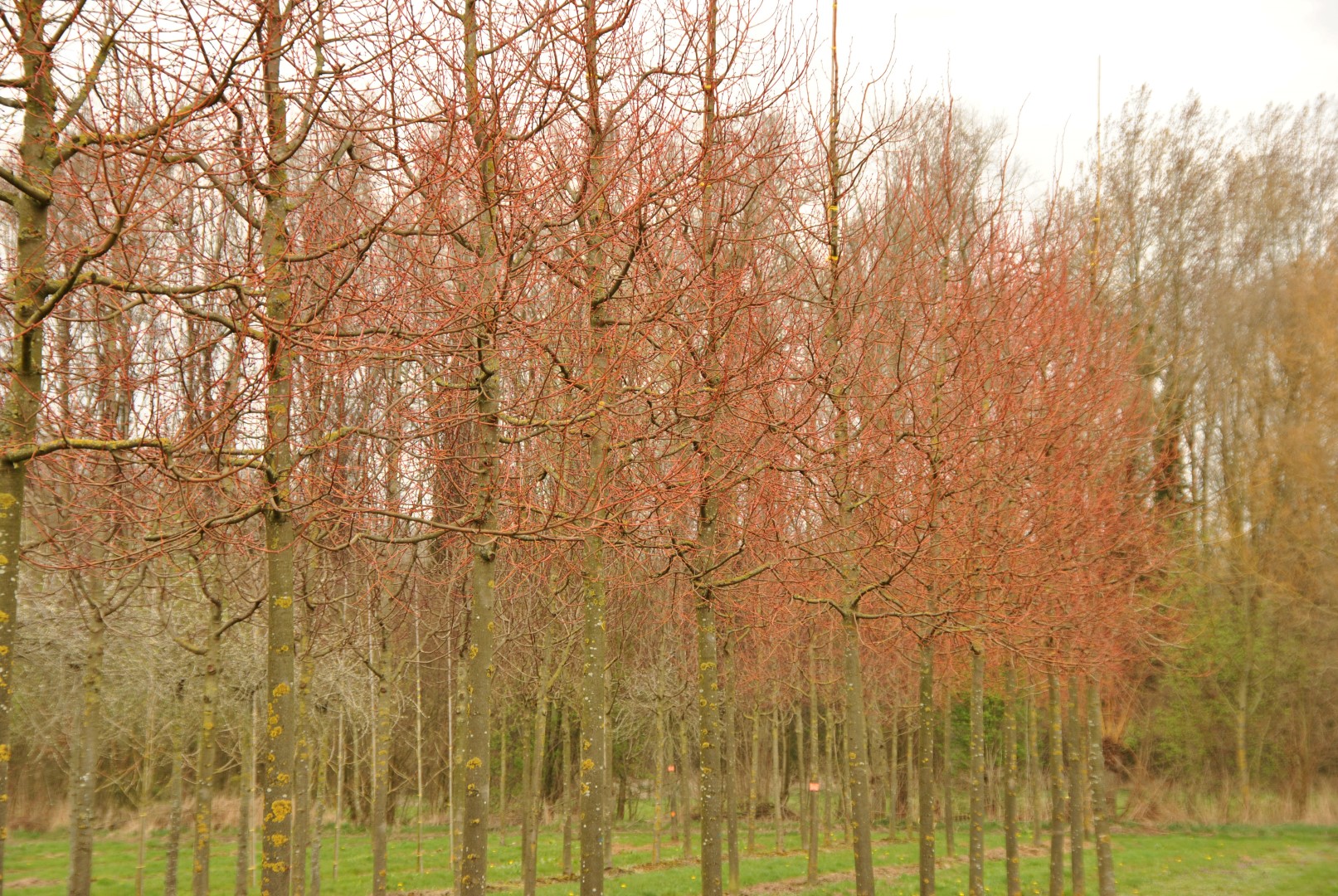
Tilia cordata 'Winter Orange' Tilia cordata 'Winter Orange' Van den Berk Nurseries
Buy this plant Plant nurseries 17 suppliers Size Ultimate height Higher than 12 metres Time to ultimate height 20-50 years Ultimate spread Wider than 8 metres Growing conditions Loam Chalk Sand Clay Moisture Moist but well-drained pH Alkaline, Neutral Colour & scent Fragrance: Flower Position Full sun Partial shade Aspect

Tilia cordata 'Winter orange'
R S T Z Or use Plant Finder TILIA cordata 'Winter Orange' smartphone 'T' > TILIA > cordata > 'Winter Orange' > TILIA cordata 'Winter Orange' Commonly known as Lime, Linden An outstanding plant with red buds and pronounced orange twigs and shoots in winter. Ivory-white scented flowers and butter-yellow autumn colour Further Reading..

Tilia cordata 'Winter Orange'
Tilia cordata. medium- to large-sized shade tree. slowly maturing at about 60' tall by 40' wide under average urban lawn conditions, but often only 20' tall by 10' wide when used as a street tree under urban stress conditions, yet over 80' tall by 60' wide under optimum growth conditions. upright pyramidal growth habit in youth, becoming.
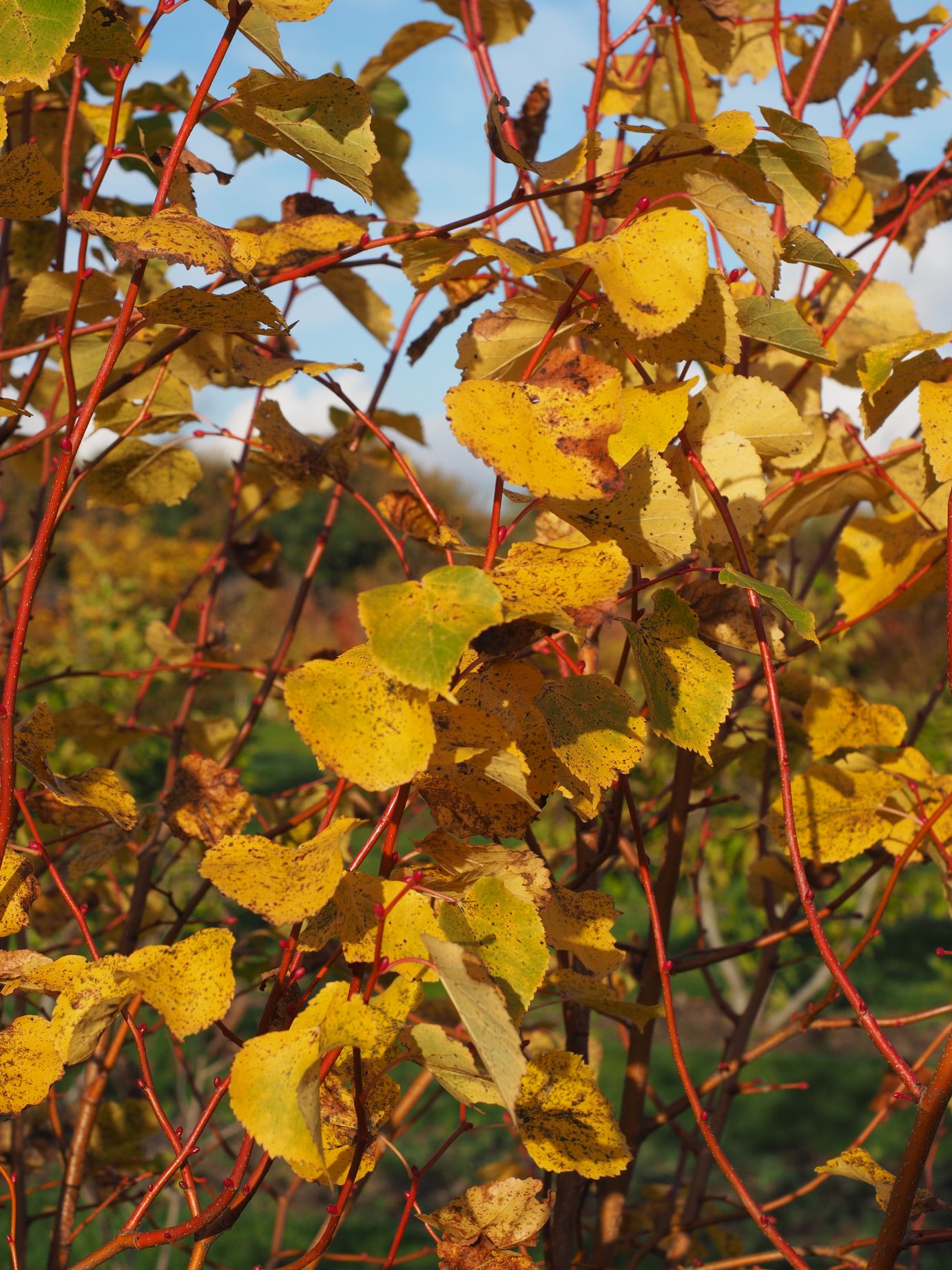
UDENHOUT TREES Tilia cordata 'Winter Orange'
Standard - £6.95*. A species of lime tree native Europe, Tilia cordata 'Winter Orange' is a distinctive cultivar with young twigs which turn a vivid orange in autumn and stay this colour until the following spring. The cool green leaves turn butter yellow in autumn before falling. Once the leaves have fallen, the Clusters of ivory white.